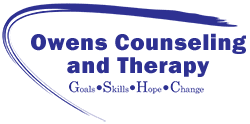Robert Allanson, LPC, CADC wrote this wonderful post for his personal blog and has given us permission to share it with you all:
I have a friend, Larry, who seems to constantly get the flu. I can’t stand it because when he gets sick he decides that he is going to sleep in bed all day and throw up repeatedly. What’s up with this guy, doesn’t Larry realize he won’t feel better until he stops throwing up and gets out of bed. And then there’s this other friend, Tina, who has this allergy to peanuts. Every time she eats one, she blows up like a balloon and breaks out in hives. I cannot stand how Tina can’t seem to eat peanuts like a normal person. What is wrong with her? Why can’t these people just be normal?
Sound familiar? Probably not. How about if I replaced Larry’s diagnosis of the “flu” with “depression?” What if I switched Tina’s struggle with an allergy to peanuts to an addiction to drugs or alcohol? Suddenly these complaints seem a little more reasonable. What drives us to accept certain “medical” issues as valid and worthy of compassion, but refuse to acknowledge the reality of mental illness? Instead we just say that they are lazy, weak, inconsiderate… the list could go on and on. On the other end of the spectrum, for those of us who struggle with mental illness, we tend to avoid seeking treatment because we are afraid of some sort of label.
The reality, however is that illness whether it is considered medical or psychological can be severely debilitating. Just as we would go to the hospital for a broken arm or see a doctor for a sinus infection without disgrace, we need not feel shame for admitting that there are some emotional struggles we cannot work through alone. For clearly a broken bone could lead to severe consequence, which I will graciously leave out of this blog post to protect anyone with queasy stomachs. In the same way untreated depression could result in a lifetime of unfulfilled dreams, destroyed relationships, and sadly depending on the situation the taking of one’s life. Unfortunately we have lived in a society for many years where the popular belief is that going to a counselor or treatment center for substance abuse or mental health issues immediately means that you are crazy or weak. That is all too far from the truth. Thank fully we live in a society where mental health treatment is readily available to anyone who is willing to utilize the courage to say, “I can’t do this on my own.”
Believe it or not, no one person is born with all of the skills necessary to be a successful adult in this world and to cope with the breadth of the stressors that can be thrust in our way. We end up learning a great deal through our interactions, relationships, successes, and especially our struggles. Unfortunately a lot of times when we hit those struggles we may find ourselves feeling lost. Each possible solution that we may envision seems to be counter productive. It can seem as if there is a roadblock in our path that is so large, no force on earth can move it. It is at that time when we need to reach out for another perspective.
The role of a counselor is to accompany you on your journey of growth. An individual who has been trained in multiple aspects of human psychology and development. A counselor is in place to be that different perspective who’s job it is to provide you with options. From the counselor’s perspective, we are the expert on our own life. We know how we grew up, we know our values, and we know what is most important to us. Unfortunately the experience of emotional struggle bring with it a myriad of distorted and negative thoughts that tend to cloud our minds. The counselor is there to assist you in unearthing these goals, values, and strengths so that you can effectively employ them in making positive changes and ultimately begin to work toward your very own life worth living.
If you or someone you know is struggling with emotional difficulties, uncertainty regarding life paths, a pattern of unhealthy behavior, or pain of any sort please feel free to reach out to Owens & Associates Counseling & Therapy LLC. at (847) 854-4333 for a free telephone consultation.
